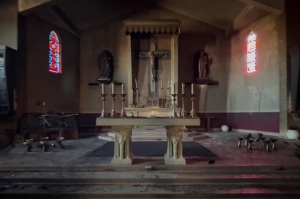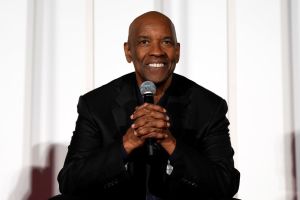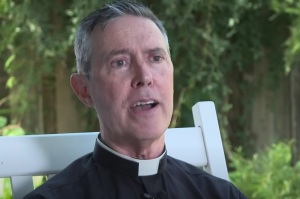Egypt's Interior Minister Survives Assassination Attempt in Cairo, Muslim Brotherhood Denies Involvement
Egypt's interior minister survived an apparent assassination attempt on his motorcade in Cairo on Thursday. The country continues to be embroiled in violent clashes between loyalists to ousted President Morsi's Muslim Brotherhood and the military government, although the Muslim Brotherhood has denied any involvement in Thursday's attack.
The attack took place as Interior Minister Mohamed Ibrahim, who is in charge of the country's police force, traveled with his motorcade through Cairo's Nasr City district, where his official residence is located. A bomb exploded in Ibrahim's motorcade, and although Ibrahim was not harmed, at least 10 other people were injured, and police claim to have killed two of the attackers.
It is still unclear how the bomb was detonated; some media outlets are stipulating that the bomb was attached to a car, while others are saying it was thrown from a nearby building, landing in the center of the motorcade. The attack may have also involved a suicide bomber and additional shooters, but more will not be known until authorities are able to comb through the damage. Photos posted on social media websites show a large explosion area with charred vehicles and debris littering the streets.
Ibrahim spoke of the attempted assassination later in the day on state television, saying a "large-size explosive device" had badly damaged his black SUV, along with other vehicles in the motorcade.
"It was a heinous [assassination] attempt," Ibrahim later told reporters at the Interior Ministry in central Cairo, according to the Associated Press. Ibrahim added that the explosive device, weighing an estimated 110 pounds, was most likely detonated with a remote control. "Even if I am martyred, another minister of interior will come and continue the war on the evil terror until we secure the country," the interior minister added.
Ibrahim also said Thursday that he has been receiving death threats for the past several weeks, and they had been taken so seriously that Armed forces chief General Abdel Fattah al-Sisi had given Ibrahim an armored car days before the attack.
No insurgency group has taken credit for Thursday's attack, and both the radical Gamaa Islamiya insurgency group and a senior official of the Muslim Brotherhood publicly condemned the assassination attempt. "The bombing allegedly targeting the minister of interior today is regrettable and the alliance strongly condemns it," senior Muslim Brotherhood leader Amr Darrag said in a statement.
As head of the country's police force, Ibrahim has been responsible for overseeing the interim government's violent crackdown on pro-Morsi supporters. Morsi, a member of the Muslim Brotherhood political party, was ousted from his presidency in early July. Morsi loyalists have since protested his ousting, and the interim government's military forces have participated in violent clashes, resulting in hundreds of casualties.
Morsi loyalists participated in a six-week long sit in protest against the military government in Nasr City, considered to be a hotspot for pro-Morsi protesters, earlier in August. Some of the Morsi supporters at the sit-in vowed to fight the government with al-Qaeda method insurgency attacks, such as car bombings.
On Thursday, Ibrahim warned that his attempted assassination was just the beginning of insurgency attacks against the military government in the country: "What happened today is not the end but the beginning," Ibrahim said. Egypt endured a wave of Islamic-inspired attacks during the 1980's and 1990's.
More than 900 of Morsi's supporters have been killed since the president's ousting, while about 100 security force members have also been killed. Morsi and other Muslim Brotherhood officials were arrested and taken to a disclosed location, after the ousting.




























